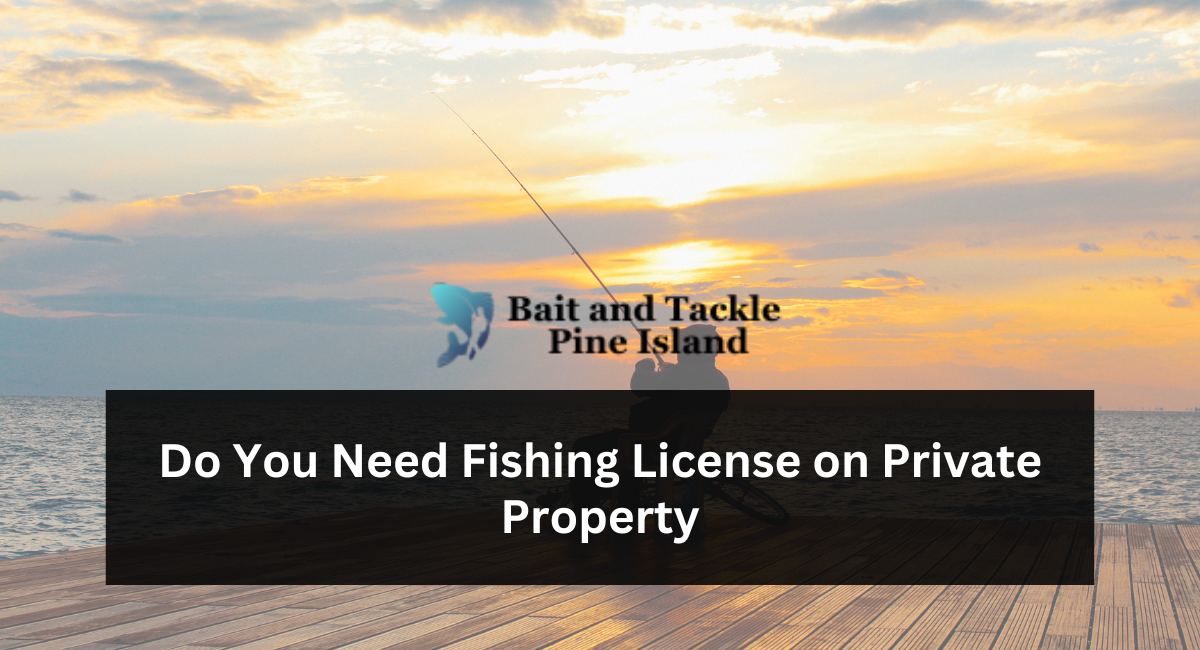Fishing, with its tranquil waters and anticipation of the catch, is a cherished outdoor activity for many. However, the rules and regulations surrounding fishing can be as diverse as the fish themselves.
Among the questions that often arise is whether you need a fishing license to cast your line on private property. The answer, as it turns out, isn’t as straightforward as one might think.
Fishing License Laws: A State-by-State Dilemma
Fishing license laws vary from state to state, and navigating this intricate web of regulations can be a bit like untangling a fishing line after a particularly spirited battle with a trophy fish.
To shed some light on this issue, let’s break down the key considerations when it comes to fishing on private property.
The 40-10 Split: Private vs. Public Property
First, it’s essential to recognize that not all states follow the same guidelines. In the United States, there are 40 states where you typically don’t need a fishing license when fishing on private property.
These states extend a courtesy to anglers on private lands, allowing them to cast their lines without the added burden of a license.
However, in the remaining 10 states, fishing on private property may require you to obtain a fishing license. The rules can vary widely, so it’s crucial to familiarize yourself with the specific regulations in your area.
To help you get a sense of the variation, let’s take a look at a few examples:
Alabama and Delaware: License-Free Private Fishing
In Alabama and Delaware, you don’t need a fishing license to enjoy the serenity of private waters. Anglers in these states can cast their lines freely on private property without the hassle of obtaining a license.
Alaska and Hawaii: License Needed for Private Fishing
In contrast, states like Alaska and Hawaii have different requirements. Anglers in Alaska are required to have a fishing license, even when fishing on private property. Similarly, Hawaii mandates a license for private property fishing.
The Role of Pond Size: Delaware’s Exception
Delaware adds an interesting twist to the mix. In the First State, you don’t need a license to fish in a private pond if the private property encompasses at least 20 acres.
However, if the pond is on land smaller than 20 acres, a fishing license is still required. This exception underscores the importance of understanding the specific criteria in your state.
“Pay-to-Fish” Lakes: Arkansas and South Carolina
In Arkansas and South Carolina, you’ll need a fishing license if you plan to fish on private property designated as “pay-to-fish” lakes. These types of fishing areas may require a license due to their commercial nature.
Private Ponds Approval: Washington’s Unique Requirement
Washington state goes a step further by requiring landowners to obtain approval for fish stocking in their private ponds before allowing owners and guests to fish without a license.
This regulation aims to ensure the responsible management of private waters.
Private Property on Public Waters: A Nuanced Approach
In most states, private property typically extends to the water’s edge, after which public waters begin. When fishing in public waters, a fishing license is usually required. However, some states have exceptions to this rule.
For instance, in Oregon and South Dakota, residents fishing from their property don’t need a fishing license, even if the water body isn’t privately owned.
Oregon does have a caveat, though: a license is required when fishing for specific species like salmon, steelhead, sturgeon, or halibut.
Maine offers another exception. Residents fishing in public waters from their property don’t need a fishing license, but there’s a catch—the property must be used for agricultural purposes to qualify for this exemption.
Free Fishing Days: A License-Free Opportunity
To make things even more interesting, most states offer what’s known as “free fishing days.” During these special days, anyone can fish without the need for a fishing license.
It’s an excellent opportunity for beginners or occasional anglers to enjoy the experience without financial barriers.
Understanding “Private Water”
The term “private water” can be a bit tricky, as different states have varying definitions. In general, water is considered private if it’s surrounded by private land and lacks any connecting streams.
The purpose of this designation is to prevent public fish from entering or escaping private water, preserving the integrity of the fishing experience.
Keep in mind that some states may have additional, more specific requirements for what qualifies as private water. Therefore, it’s essential to research your state’s definition to ensure compliance.
The Bottom Line on Private Property Fishing Licenses
In summary, whether you need a fishing license to fish on private property depends on the state you’re in and the specific circumstances.
It’s crucial to understand your state’s regulations, including any exceptions or special requirements for private property fishing.
Before you cast your line, visit your state’s wildlife agency website or contact local authorities to confirm the rules and obtain any necessary licenses. And don’t forget to take advantage of free fishing days if your state offers them—they’re a fantastic opportunity to enjoy the beauty of nature without the usual license requirements.
So, whether you’re angling in your backyard pond or exploring the waters on a friend’s property, be sure to check the local fishing regulations, abide by them, and savor every moment of your fishing adventure.

